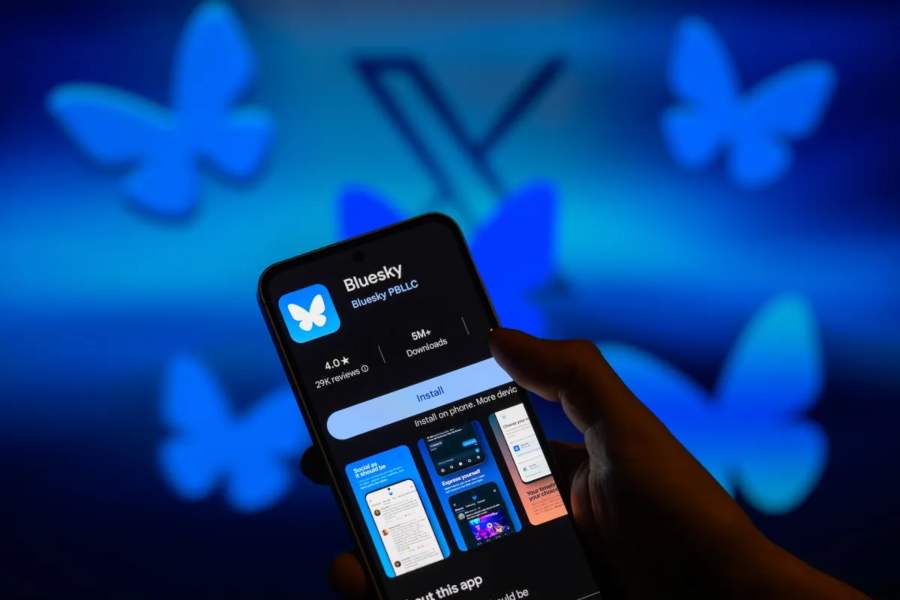Bluesky, the decentralized social media platform initially heralded as a freer alternative to Twitter (now X), is grappling with government-imposed censorship for the first time, and the development has exposed cracks in its promise of true openness.
Background:
Earlier this month, Bluesky restricted 72 user accounts from being accessed in Turkey following demands by Turkish government authorities. According to a report by Turkey’s Freedom of Expression Association, 59 accounts were blocked citing “national security and public order” concerns, while 13 additional accounts and at least one post were hidden from Turkish users.
The move has sparked a wave of criticism, particularly among Turkish users who had previously fled Twitter’s restrictions in search of a less censored environment. Bluesky’s compliance with the Turkish government’s request has fueled skepticism about whether the platform is genuinely decentralized and resistant to political pressure, or if it is merely replicating the same vulnerabilities as its predecessors.
How Bluesky’s Structure Both Enables and Limits Censorship:
Unlike Twitter, Bluesky is built atop the AT Protocol, which separates user accounts, data storage, and content viewing into modular components. This architecture means that while Bluesky’s official app enforces censorship through “geographic labelers,” the underlying content infrastructure remains untouched.
In simpler terms, censored users are not banned from the Bluesky network itself — only their visibility is restricted on the official app for users within Turkey.
Users accessing Bluesky through the official app have no way to opt out of the platform’s moderation policies, including geographic restrictions. As explained in a technical analysis by Laurens Hof in The Fediverse Report, Bluesky has integrated a Turkish moderation labeler that automatically censors content regionally, leaving users on the official app with no practical bypass.
Third-Party Apps: A Temporary Escape Hatch:
However, the decentralized nature of the AT Protocol means that third-party Bluesky apps — part of the broader “Atmosphere” ecosystem — are currently not bound to Bluesky’s moderation decisions. Apps such as Skeets, Ouranos, and Deer. social, and Skywalker can display all accounts, including those blocked by Bluesky’s official app, because they do not implement geographic labelers.
This offers Turkish users, and others facing potential censorship, a workaround — at least for now.
Yet this loophole comes with important caveats:
- Most third-party developers have not deliberately avoided implementing geographic labelers; rather, they simply haven’t prioritized the added technical complexity.
- These apps maintain smaller user bases, reducing the immediate likelihood of government scrutiny.
- If any of these apps grow significantly, governments like Turkey’s could pressure them directly, threatening actions such as app store removals if censorship demands are not met.
Developers acknowledge this risk but note they plan to defer moderation changes until companies like Apple or Google intervene.
Efforts to Future-Proof Against Censorship:
To address the precariousness of this workaround, some developers are building more censorship-resistant alternatives. For example, Aviva Ruben, creator of Deer. Social, is designing the app to allow users to disable Bluesky’s official moderation service entirely. Deer. Social will empower users to select independent third-party labelers — or none at all — and even manually configure their location settings to sidestep geolocation-based censorship.
“I like the current policy, but I do fear it will get more restrictive or change in the future — a great reason to continue pushing on alternative AppViews,” Ruben stated, highlighting concerns that the scope of government censorship requests could expand beyond Turkey to other nations, including the U.S.
In addition, Ruben mentioned plans to introduce a “no location” mode in Deer. social, offering users the ability to avoid any geographic-based moderation altogether.
Why It Matters:
Bluesky’s entry into government-mandated censorship marks a pivotal moment for decentralized social media platforms. It underscores the tension between maintaining legal compliance in various countries and upholding the ideals of a censorship-resistant, user-empowered web.
While Bluesky’s architecture does provide more flexibility compared to centralized platforms like Twitter or Facebook, this incident shows that decentralization alone does not guarantee immunity from political pressure, especially if the most popular access points (like the official app) voluntarily comply with state demands.
What’s Next:
The current workaround through third-party apps is fragile. As usage grows or political interest intensifies, governments could pressure these apps or app stores directly, forcing developers to confront difficult choices between compliance, resistance, or platform shutdowns.
Meanwhile, the future of decentralized social media may hinge on projects like Deer. social, which aims to give users granular control over how and by whom their experience is moderated.
For Bluesky, balancing regulatory demands with community expectations of openness and decentralization will become an increasingly challenging — and defining — aspect of its evolution.







